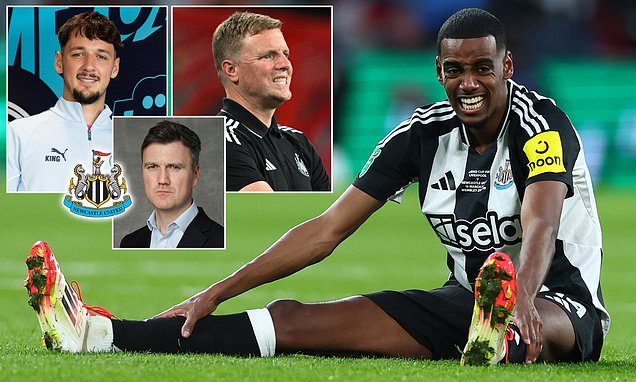Our chief football reporter, Craig Hope, offers an exclusive deep dive into the pressing questions surrounding Newcastle United’s tumultuous summer, addressing significant transfer frustrations, player discontent, and the club’s strategic challenges. This comprehensive Q&A illuminates the complexities behind failed negotiations and high-profile departures, painting a candid picture of the current atmosphere within the Premier League club.
Despite their Champions League qualification and recent trophy success, Newcastle has faced unexpected difficulties attracting top-tier talent. Sources indicate that players are now circulating concerns about the club’s true project and the limitations imposed by profit and sustainability rules, a stark contrast to the initial excitement surrounding the new ownership. This narrative of a struggling transfer window highlights a deeper undercurrent of dissatisfaction among potential recruits.
A significant factor contributing to the current unease is the leadership void left by the departures of Amanda Staveley and Mehrdad Ghodoussi. The imminent arrival of David Hopkinson as the new CEO is viewed internally with much anticipation; however, his commercial background raises questions about his immediate impact on football operations. Insiders stress the urgent need for a CEO with decisiveness and authority on the ground, independent of direct Riyadh oversight, to streamline executive decisions.
Illustrating the challenges in transfer negotiations, the breakdown of the James Trafford move is attributed to specific interactions by a key club figure, leading to strained relationships with other clubs. Mending these vital connections will be crucial for future Football transfers. While still keen on some targets like Guehi, Newcastle is now exploring alternatives abroad, including Leonardo Balerdi and Giorgio Scalvini, showcasing a shift in recruitment strategy.
The Alexander Isak saga continues to dominate headlines, with the striker reportedly training at his former club, Real Sociedad, without clear club permission—a move stirring considerable fan discontent. Isak’s reported desire for a Liverpool transfer stems from a perceived broken promise regarding a new contract, despite his substantial existing wages. Newcastle, however, will only sanction a sale on their terms, contingent on securing a suitable replacement to avoid tactical weaknesses upfront.
The search for a new striker has intensified, with Newcastle exploring various options following complications with Sesko and Yoane Wissa. Ollie Watkins remains a key interest, considered a strong alternative should Isak depart, offering proven Premier League goals. Informal contact has also been made regarding Rodrigo Muniz, indicating a broad exploration of the market to bolster their attacking options.
Beyond transfers, the squad faces an imbalance, particularly in midfield, a position currently not prioritized, leaving the team vulnerable given their three-man midfield setup. The ongoing lack of direct communication from the Saudi ownership is also a point of contention, with Craig Hope’s recent article highlighting the detrimental impact this silence has on public perception and internal stability, urging the Saudis to leverage their influence more actively for the club’s benefit.
Despite the turbulent summer, Newcastle United retains significant strengths, including an excellent manager in Eddie Howe, a strong financial position, and the allure of Champions League football. Yet, the current atmosphere underscores the critical need for swift resolutions to the Isak situation and successful new signings. The period ahead will be pivotal in shaping the club’s trajectory and restoring confidence among its fanbase and within the Premier League landscape.






Leave a Reply